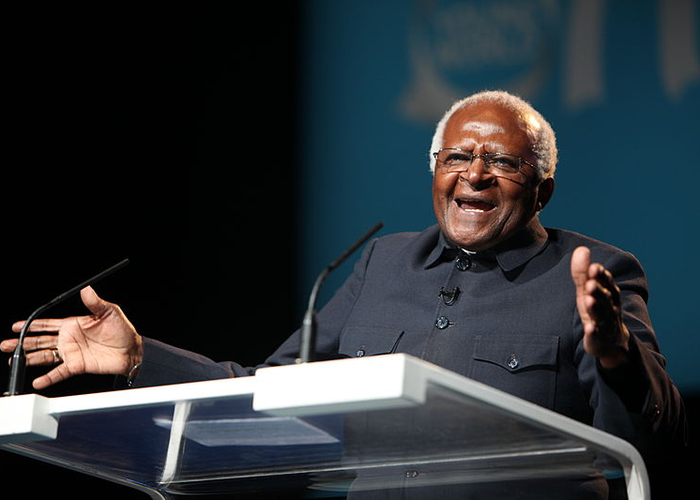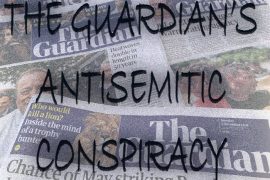In the influential 2018 book ‘The Coddling of the American Mind: How Good Intentions and Bad Ideas Are Setting Up a Generation for Failure’, co-authors Jonathan Haidt and Greg Lukianoff argue that our era’s increased polarisation stems in large measure from three great untruths. One of these is “The Untruth of Us Versus Them: Life is a battle between good people and evil people”.
The more we’re trained, they argue, to view all political problems through such a moral binary, the less likely we are to try to find common political ground with, and common humanity in, our adversaries – a habit of mind valuing rhetorical restraint over hyperbole, solutions over self-righteousness.
Nowhere has the increasing encroachment of the ‘good vs. evil’ paradigm been more evident than in coverage of the Israeli-Palestinian conflict. Some journalists have in fact openly criticized those insisting on balance, objectivity and truth when reporting from the region, arguing instead for outright pro-Palestinian advocacy. The problem with such advocacy journalism is not only that it necessarily skews coverage in favor of the Palestinians, but that, in its Manichean, oppressed-oppressor framing, it denies Palestinians agency whilst robbing Israelis – and often Jews qua Jews – of their very humanity.
This can take many otherwise sober, non-racist journalists to dark places. Whilst most of the biased foreign reporters covering the conflict don’t actively peddle antisemitic tropes, many simply turn a blind eye to, or rationalise, even the most hardcore expressions of racist sentiments towards Jews promoted by Palestinians and their supporters.
This brings us to the Guardian’s Chris McGreal, a reporter we’ve covered extensively. Though we can never know what’s inside McGreal’s heart, he certainly has used language evoking antisemitic ideas, and is one of the few Guardian journalists singled out by the CST in one of their annual reports on antisemitic rhetoric in Britain.
Though we’ll give McGreal the benefit of the doubt regarding his personal views about Jews, there is no question that, during his stint as the Guardian’s Jerusalem correspondent, and at every opportunity where he’s opined about the Israeli-Palestinian conflict, or the debate surrounding the conflict, his ‘good vs. evil’ framing has resulted in the erasure of antisemitism when expressed by those on the ‘correct’ side of the issue.
His latest op-ed (“When Desmond Tutu stood up for the rights of Palestinians, he could not be ignored”, Dec. 30) praises Tutu, and predictably promotes the ‘Israeli apartheid’ charge (a libel, originating with Soviet propaganda campaigns in the 60s, which has been repeatedly refuted).
But, tellingly, he also denies that the former leader in the campaign to end South African apartheid sullied his reputation by repeated expressions of antisemitism.
McGreal writes:
Even amid the torrent of praise for the revered former archbishop Desmond Tutu in the days since his death, the anti-apartheid champion is not being universally mourned. Alan Dershowitz, the renowned US constitutional lawyer and ardent defender of Israel, took a moment to brand Tutu as “evil” and “the most influential antisemite of our time”.
“The world is mourning Bishop Tutu, who just died the other day. Can I remind the world that although he did some good things, a lot of good things on apartheid, the man was a rampant antisemite and bigot?” he told Fox News.
Dershowitz accused Tutu of minimising the Holocaust and of comparing Israel to Nazi Germany – an extreme interpretation of the former archbishop’s statements that takes some convolutions to reach.
First, Dershowitz didn’t say Tutu was “evil”. He said he has a “mixed legacy” and that his rhetoric about Jews was evil. Moreover, though McGreal is correct that, based on what we’ve seen, the claim that Tutu directly compared Israel with Nazi Germany is a stretch, he fails to mention that the evidence pointing to Tutu’s antisemitism extends far beyond that one accusation, as documented by CAMERA, Dershowtiz, ADL and many others.
Here are some examples, compiled from Dershowitz’s article about Tutu – most of which is based on a book he wrote titled ‘Defending Israel’.
Tutu complained of “the Jewish Monopoly of the Holocaust“.
He wrote, in the Guardian, that Americans “are scared…to say wrong is wrong because the Jewish lobby is powerful—very powerful.”

He accused Jews of exhibiting “an arrogance—the arrogance of power because Jews are a powerful lobby in this land and all kinds of people woo their support.”.
He asserted that Zionism has “very many parallels with racism,” thus echoing the antisemitic ‘Zionism equals racism’ resolution passed by the UN General Assembly and subsequently rescinded.
When confronted with his double standard against Jews [in his support of BDS], Tutu justified it by saying: “Whether Jews like it or not, they are a peculiar people. They can’t ever hope to be judged by the same standards which are used for other people.”
He said that “the Jews thought they had a monopoly of God: Jesus was angry that they could shut out other human beings”, and that Jews have been “fighting against” and being “opposed to” his God.
He compared the features of the ancient Holy Temple in Jerusalem to the features of the apartheid system in South Africa.
He implied that Israel might someday consider as an option “to perpetrate genocide and exterminate all Palestinians.”
He claimed that his God sides with Palestinians, whom he compares to the Israelites under bondage in Egypt.
ADL documented the following direct quote by Tutu, from 2012, in the context of his support for BDS:
God, who is the same yesterday, today and forever, neither slumbers nor sleeps. Prophetic voices have been calling this empowered people [the Jews] who were once oppressed and killed, to their deepest values of justice and compassion, but they have refused to listen even to the most reasonable voices. The human community cannot be silent in the face of the gross injustice being meted out to the people of Palestine.
The Jewish Holocaust, engineered and implemented primarily by Europeans, gave some ideologues within the Jewish and Christian community an excuse to implement plans that were in the making for at least 50 years, under the rubric of exceptional Jewish security. In this way began the immense oppression of the Palestinian people, who were not at all involved in the Holocaust.
Scholar Edward Alexander reported on Tutu’s speech during a visit to Yad Vashem in 1989, where he scolds Jewish descendants of Holocaust victims thusly:
“We pray for those who made it happen, help us to forgive them and help us so that we, in our turn, will not make others suffer.”
In Alexander’s book ‘The Jewish Wars‘, he also detailed how Tutu peddled the antisemitic trope of holding all Jews responsible for the actions of the state of Israel, when he warned that Black-Jewish relations in America “would continue to suffer until Israel repudiates it’s involvement with South Africa”.
According to Alexander, Tutu, evoking accusations hurled by former MP David Ward, also once asked Eliahu Lankin, Israel’s ambassador to South Africa in the early to mid 80s, “how it was possible that the Jews, who had suffered so much persecution, could oppress other people.”
None of this is meant to demonise Desmond Tutu, who valiantly fought the apartheid regime in Pretoria, whilst insisting on a path of non-violence and, ultimately, national reconciliation.
Paraphrasing a tweet by one astute observer about Tutu’s specific legacy, but also serving as broader rejoinder to the logic of cancel culture: Tutu was a figure of huge moral and actual courage in fighting racism in South Africa. But, he was also guilty of promoting appallingly racist ideas about Jews. Does the second thing nullify the first? No. Does the first thing excuse the second? Also, no.
As Haidt and Lukianoff argued in their book, the capacity to resist such destructive binary, ‘good vs evil’ thinking requires a commitment to evidence-based arguments, an embrace of nuance and intellectual honesty – none of which we can ever hope to see adopted by Guardian journalists like Chris McGreal.
Related Posts
Anti-Zionism and Antisemitism Tarnish Desmond Tutu’s Nobel Peace Prize




